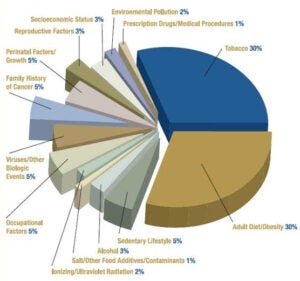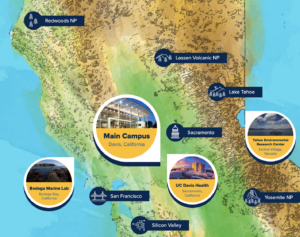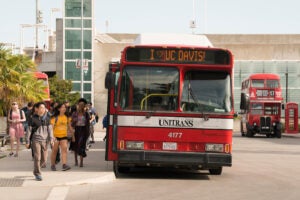What is Nutritional Biology?
Nutritional biology is an interdisciplinary field that positions human and animal nutrition within biology and physiology from the cellular to the whole organism level, and incorporates implications for health, from individuals through communities.
What does it mean to do a PhD?
A PhD is a research degree: it certifies that the person who holds the degree completed a course of study and carried out research to figure out something about the topic that no one else knows.

Some people with PhDs go on to careers as faculty in institutions that vary from community colleges to big research universities. Others seek positions at government agencies (e.g., the National Institutes for Health, USDA, or Food and Drug Administration) or in the policy sector. The NUTGAP program typically includes a panel of PhD alumni who’ve entered non-academic careers to share perspectives on their choices.
If I complete the NUTGAP program, am I obligated to do a PhD in Nutritional Biology?
No, you are not. We want you to figure out the path that best suits your interests and dreams. While we hope that it includes Nutritional Biology, we recognize that many undergraduates test the waters before settling on a discipline…and that’s fine. We’re good at being a sounding board for your options.
If I decide to do a PhD, will I be eligible for financial aid?
At most institutions, PhD programs in STEM pay their students a stipend and waive educational fees. That is, universities pay YOU and not vice versa. An added benefit to NUTGAP alumni: all students who complete NUTGAP and enter any graduate program at any campus of the University of California will receive one year of fellowship support from the University of California Office of the President, provided that their graduate program provides four years of funding in the form of TAship, RAship, or fellowship.
What are the program dates?
Our program is constrained by the end of our spring quarter and start of our partners’ fall semesters. Thus, we begin around 20 June and end around the end of the second week of August.
I’m out of school in early May. How about I start earlier?
Alas, this is not feasible. We open our dormitories as soon as the UC Davis quarter ends and first-year students move out, which is around 20 June. Most rentals in Davis run on a year lease, so finding a place in the city of Davis for a few weeks in spring would be very challenging. And our faculty are wrapping the academic year and aren’t positioned to start a new student in May.
Where is Davis?
What’s UC Davis like?
UC Davis is a major research university in a college town. The undergraduates are demographically diverse, with 74% of domestic undergrads identifying as non-white in Fall 2020. And in Fall 2021, 38% of are first-gen college students.
This video is aimed at prospective undergrads…but it might give you a sense of life at our campus.

Will I have to pay for anything out of pocket? Application fee, transportation to Davis?
No, there’s no application fee. Once admitted, we cover all your costs, put you up in campus housing and provide meals, and pay you a stipend as well.
What’s the housing like?
All summer research program students are housed in modern campus dormitories in double rooms.
Can I bring my car?
Well, yes. But we will not pay for parking and you’ll have to make parking arrangements on your own.
If I don’t have a car, how can I get to SF, Sac, etc?
Davis is well-served by transit.
If you need to get to the UC Davis Health campus for a research collaboration, you can ride a shuttle.
For recreation: we’re on an Amtrak route, which serves both Sacramento and the SF Bay Area. Unitrans serves the entire Davis community, and YoloBus has daily trips to Sacramento, where you can transfer to the Sacramento light rail or bus system. For destinations off the beaten path, Davis offers both zipcars and traditional car rentals.
And for every day getting around: We’ll provide you with a bike, helmet, lock, and bike lights and some coaching.

I have another question not answered here.
Check to see if it’s answered elsewhere on this website. If it’s not, email Carole Hom (clhom@ucdavis.edu), the program coordinator.